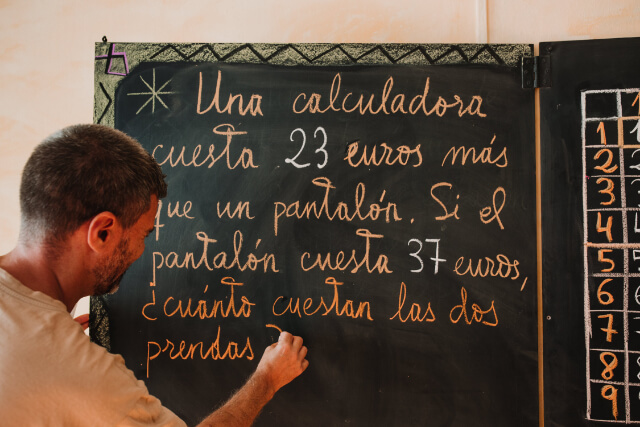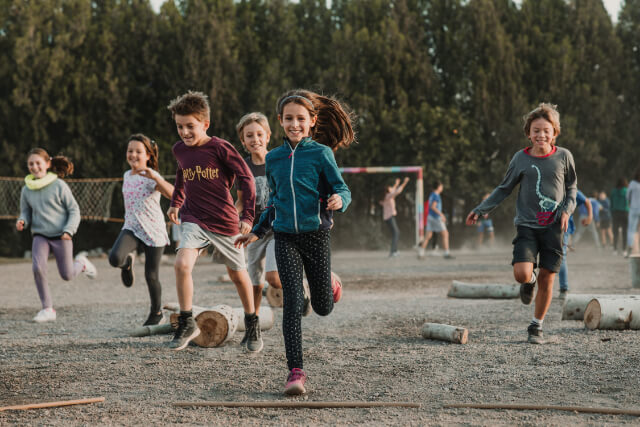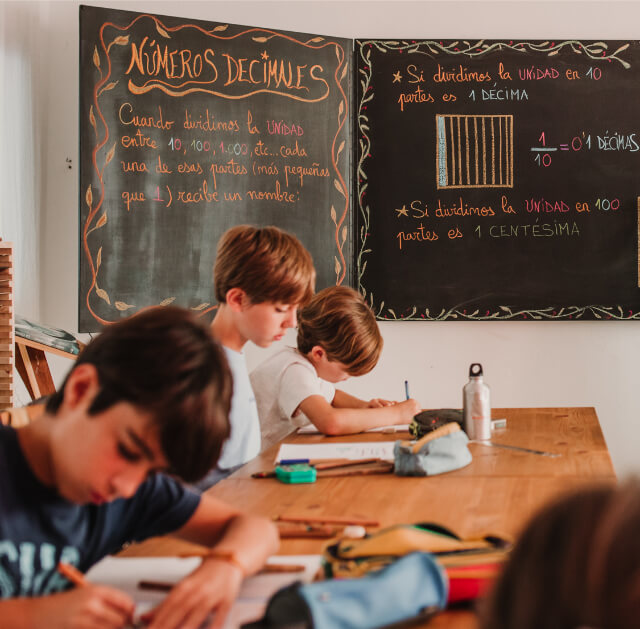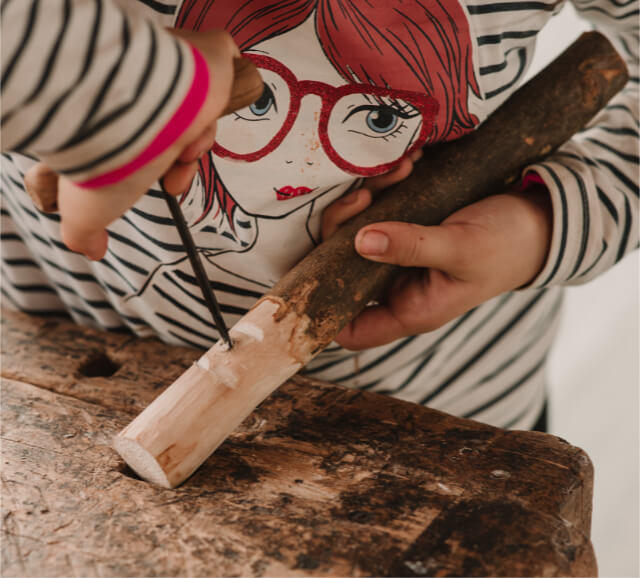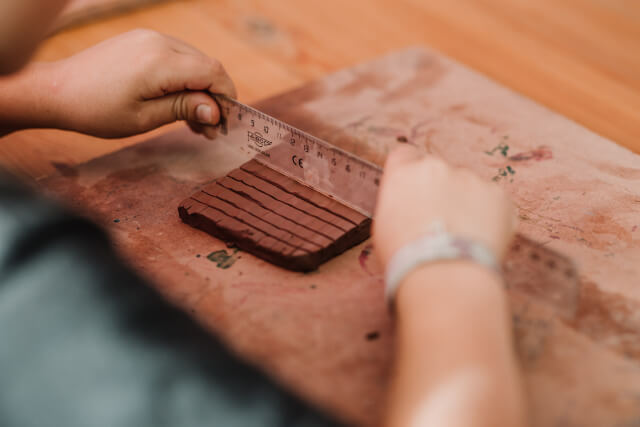
At this stage the children are ready to learn how the world works. In Waldorf schools the lessons are presented in an artistic and imaginative way, because this way they internalise the concepts much better. The children are accompanied throughout primary school by the same teacher, which generates a deep understanding of each pupil’s personality, as well as mutual trust, appreciation and respect.
A day in a Primary classroom
8:30 h.
Arrival at school and meeting the teacher is one of the key moments of the day. The children have changed their shoes, as they did in Infants, a gesture that means for them to enter a close, warm place, where they feel at home, and at the same time as a way of respecting the space. The teacher greets each one warmly, allowing him or her to connect with pupils and to know how to accompany them during the morning.
The first activity of the day is the rhythmic part. We stand in a circle and recite a poem that will accompany us throughout the course. This moment allows us to meet our classmates, say good morning and enables us to work on content in an experiential and dynamic way (the multiplication tables, working with syllables…). In addition, songs are sung that have to do with the time of year we are in, which helps them to have a very gratifying rhythmic experience.
Then we work on the news of the day. They sit down and share things that have happened to them, an exercise that allows them to work on their memory, respect their turn, practice active listening, lose their fear of speaking out loud and integrate into the group.
Main lesson. This is the time when they are most awake and ready to receive the contents in a lively way. Work is carried out in periods that are related to the evolutionary stage of each group.
Mathematics, language, history, geography, botanics, zoology, physics, agriculture, construction… In this main class, the teacher uses the classroom board to show the content he/she wants to teach and works in an experiential way using different materials so that they can touch them, draw them, work on them in teams or individually. When the learning is integrated, the pupils write it down in their notebooks. We do not use textbooks, but the pupils create their own material through this work. In each of them, therefore, the nuances and temperaments are observed, each one imprints their own style and individuality.
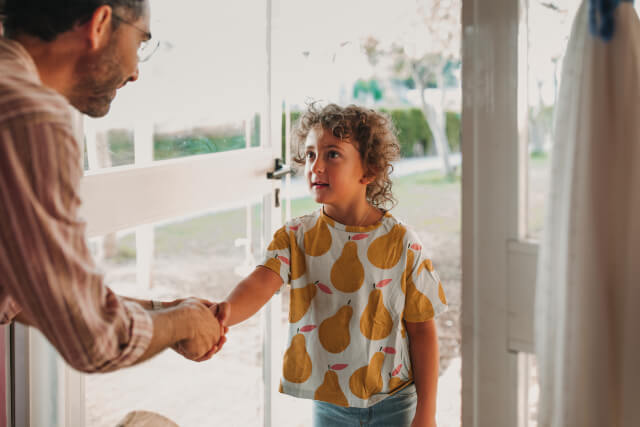

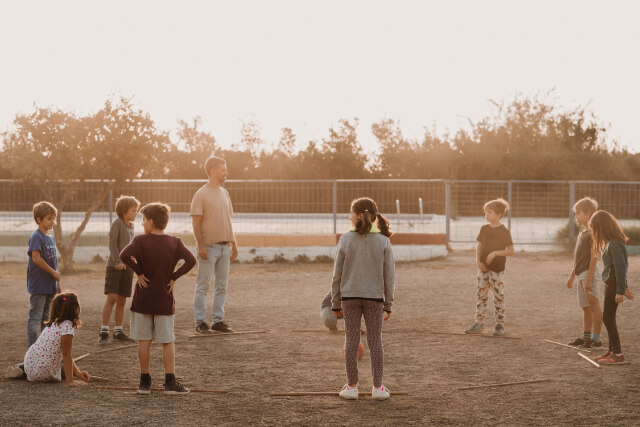
10:30 h.
The story told by the tutor accompanies the children at the stage of their development. These stories vary according to the year (in the first year, fairy tales, in the second year, fables, in the third year, characters who have transformed history, etc.). The stories help them to find themselves, to work emotionally, to recognise themselves through the characters in the stories.
10:45 h.
The first snack. After a moment of expansion, in which everyone places their tablecloth, their bottle of water and their box with the food, we light a candle, we are grateful for the food in front of us and we eat calmly, with full awareness. It is a moment of calm and concentration, followed by a moment of expansion, going outside to play.
11:30 h.
This is the time for specialities: music, handicrafts, horticulture, carving… These are subjects that help to work on fine motor skills, to avoid losing the pleasure of working with their hands, which has a direct connection with brain development. English, Valencian and ethics are also taught during this time.
13:00 h.
Second snack. At this time they eat something light to replenish their strength (a piece of fruit, some nuts…) and then they go out to enjoy the outdoors again.
14:15 h.
The teacher shares a poem and the whole class prepares the classroom for the next day.
